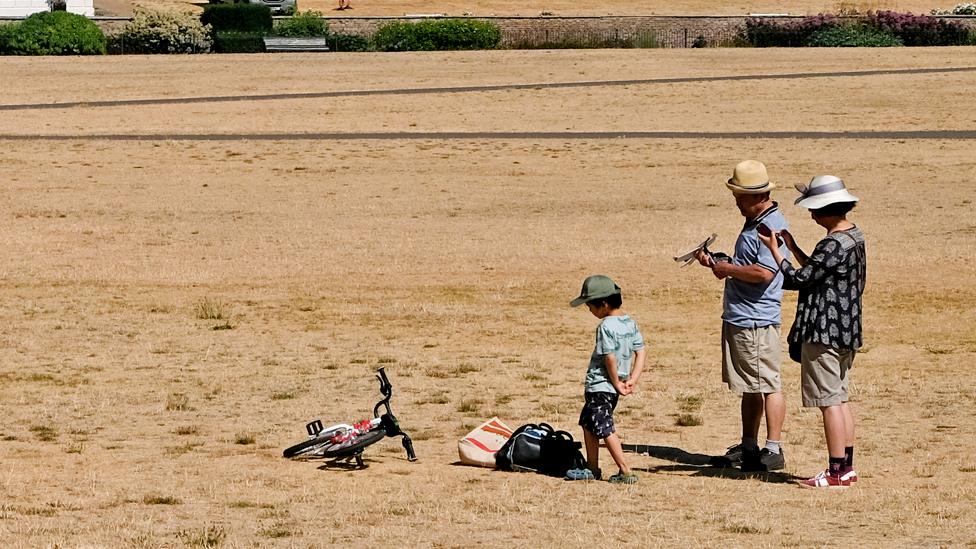UK weather: Thunderstorms warning as heavy rain hits and roads flood
- Published

Roads have flooded around the UK, including in Port Talbot
Parts of Scotland have been hit by a week's worth of rain in just 24 hours as downpours batter the UK after days of hot, dry weather.
Heavy rainfall has led to flooded roads across England and Wales.
The Met Office issued yellow thunderstorms warnings in both nations, with travel disruption, power cuts and lightning possible.
The Environment Agency has issued nearly 20 flood alerts for areas of Midlands and south-east England.
The stormy conditions will continue to move south through the day, following the longest heatwave in 15 years in south-east England - with temperatures passing the threshold of 28C (82F) on nine consecutive days.
Have you been affected by the storms? Get in touch via email here, external.

London, like much of the south of England, has seen its first proper rainfall in weeks

More flooding in Port Talbot
By 07:00 BST, Strathallan near Perth, had seen 55.2mm (2in) of rain fall in less than 24 hours. This is 71% of the 77mm the area normally sees in August.
The heavy rain led to flooding on tracks in the area and a signalling fault, while speed restrictions of 40mph (64km/h) were put in place across vast swathes of the rail network.
Houghton Hall in Norfolk saw 17mm (0.7in) of rain in the space of an hour on Tuesday afternoon.
Footage and photos shared on social media showed torrential rain and floodwater sweeping through towns across southern England and Wales, including Newquay in Cornwall, Bishop's Tawton in Devon, Haywards Heath in West Sussex, Port Talbot in south-west Wales, and Bridport in Dorset.
Other disruption caused by the stormy conditions includes:
Three people were injured when part of a balcony fell in Newquay
Emergency street repairs had to be carried out in Sheffield after flash flooding
Homes were flooded and roads blocked at Totton, near Southampton
Residents had to have their homes pumped out at Market Rasen, Lincs
Flood alerts have been issued covering 10 London boroughs
BBC Weather presenter Jennifer Bartram said while heavy rain in August is not unusual, it "is perhaps causing problems as a result of how dry it's been in the lead up".
She added heavy showers and thunderstorms will continue overnight and into Wednesday, becoming increasingly confined to southern England and East Anglia as the day goes on - with the continuing potential for further flooding in places.

Flooding on train tracks in Perth caused a signalling fault.
On the roads, Traffic Scotland warned surface water was affecting many routes and urged motorists to take care.
A yellow weather warning has now ended in Scotland but warnings remain in place for most of England and Wales on Tuesday, and southern England on Wednesday.
Yellow thunderstorm warnings mean flooding of homes and businesses could happen quickly, with fast flowing or deep floodwater possible, causing a danger to life.

Flooding in a supermarket car park in car park in Loughborough
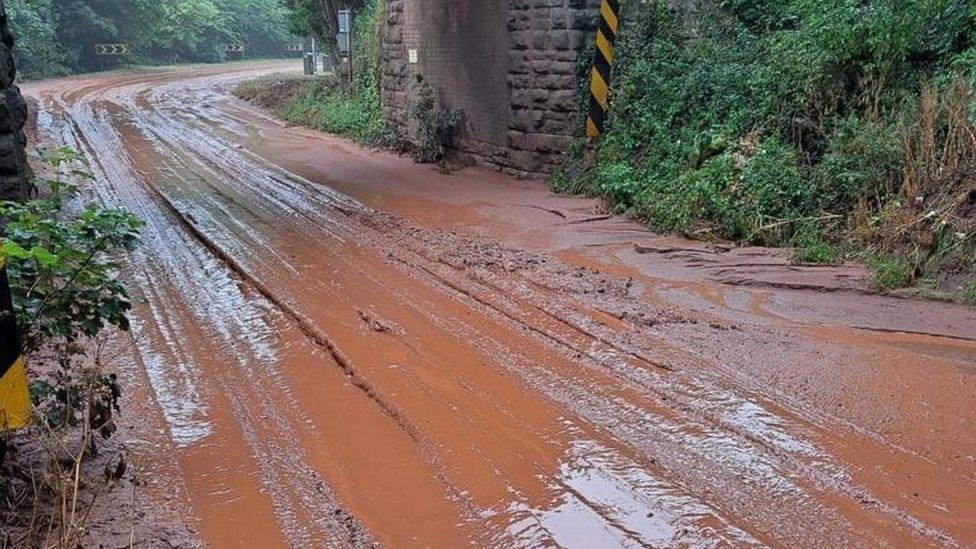
Tonnes of mud and potatoes were washed on to a road in Somerset by the heavy rain
Local authorities in Somerset said the A358 is set to reopen after they finished shifting more than 50 tonnes of mud off the road at Combe Florey, following a mudslide on Monday.
Meanwhile, Network Rail said a suspected lightning strike near Hither Green in south-east London had caused signalling problems and power to fail, leading to passengers being stranded on trains and delays.
And swimmers have been warned of sewage and pollution at several beaches on English coastlines, linked to the heavy rain.
According to data gathered by environmental campaign group Surfers Against Sewage, there has been storm sewage discharge into the waters at beaches in Cornwall, Devon, Sussex, Essex, Lancashire, Lincolnshire, Northumberland and Cumbria.
Watch: Lightning strikes light up Scottish skies
Weeks of little rain caused drought across parts of the UK but the next few days is unlikely to ease the parched conditions because rainwater struggles to permeate dry ground, meaning it will run off the dehydrated surface and lead to flash flooding in some areas.
Stephen Dixon from the Met Office advised anyone who lives in an area prone to flooding to "have a grab bag with things like water and insurance details and anything you might need, ready to go".
He added people who feel their property is vulnerable to flooding could consider moving valuables upstairs.
One weather watcher in Newquay posted a video of torrential rain leading to flooding.
Allow X content?
This article contains content provided by X. We ask for your permission before anything is loaded, as they may be using cookies and other technologies. You may want to read X’s cookie policy, external and privacy policy, external before accepting. To view this content choose ‘accept and continue’.
Despite the rain, the Environment Agency declared a drought in Yorkshire on Tuesday, the first since autumn 2018.
Meanwhile, hosepipe bans are set to remain in place on the Isle of Man and in Kent and Sussex.
Thames Water has said one will come into force in "the middle of next week" and the company confirmed there has been "less than 65% of the usual rainfall in this year".
Thames Water covers Greater London, the Thames Valley, Gloucestershire and north Wiltshire.
Hosepipe bans will also come into force in:

Rain did not dampen the spirits of spectators at the Fringe festival in Edinburgh.
Amid these bans, some water companies have been told to "up their game" by the head of the water regulator for England and Wales, as he defended Ofwats's record of holding water companies to account.
Questioned on BBC Radio 4's Today Programme, Ofwat chief executive David Black singled out businesses like Thames Water and Southern Water and described the "poor performance" of some water firms as "quite simply unacceptable".
Daily demand for water in England and Wales was 14 billion litres (three billion gallons), on average in 2018. In periods of hot weather this is likely to be higher.
But each day, another three billion litres were lost through leakage, according to a National Audit Office report.
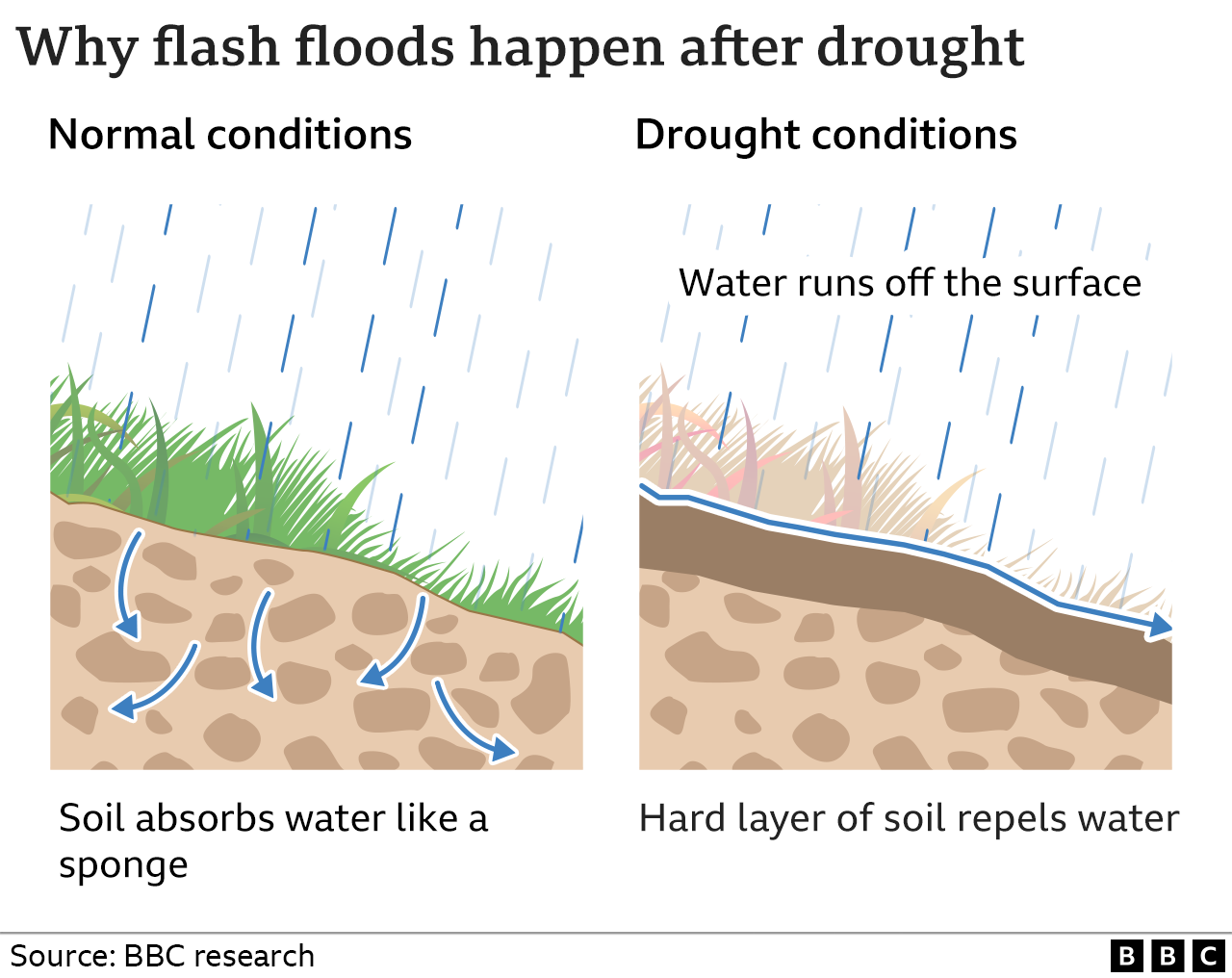

How have you been affected by the storms and heavy rain? Email haveyoursay@bbc.co.uk, external.
Please include a contact number if you are willing to speak to a BBC journalist. You can also get in touch in the following ways:
WhatsApp: +44 7756 165803, external
Tweet: @BBC_HaveYourSay, external
Or fill out the form below
Please read our terms & conditions and privacy policy
If you are reading this page and can't see the form you will need to visit the mobile version of the BBC website to submit your question or comment or you can email us at HaveYourSay@bbc.co.uk, external. Please include your name, age and location with any submission.

Related topics
- Published15 August 2022
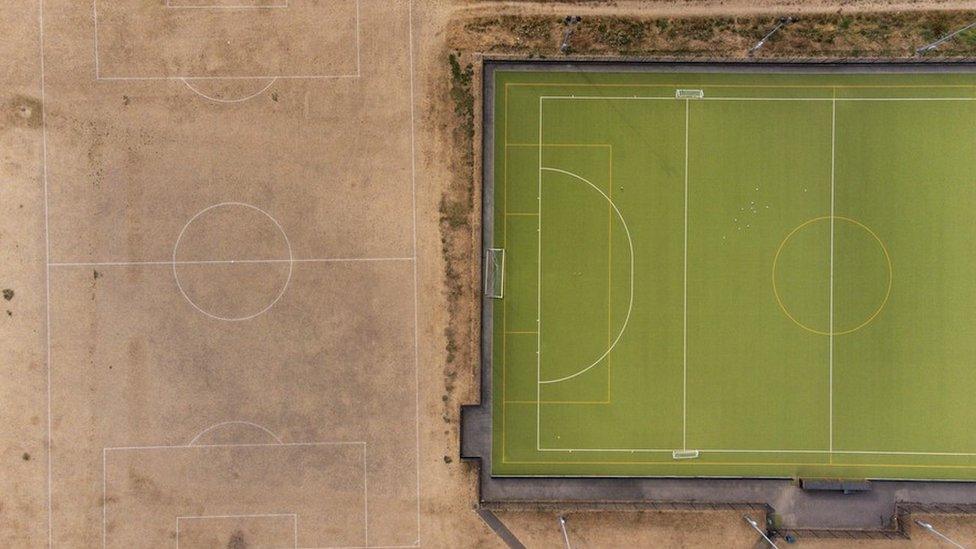
- Published15 August 2022
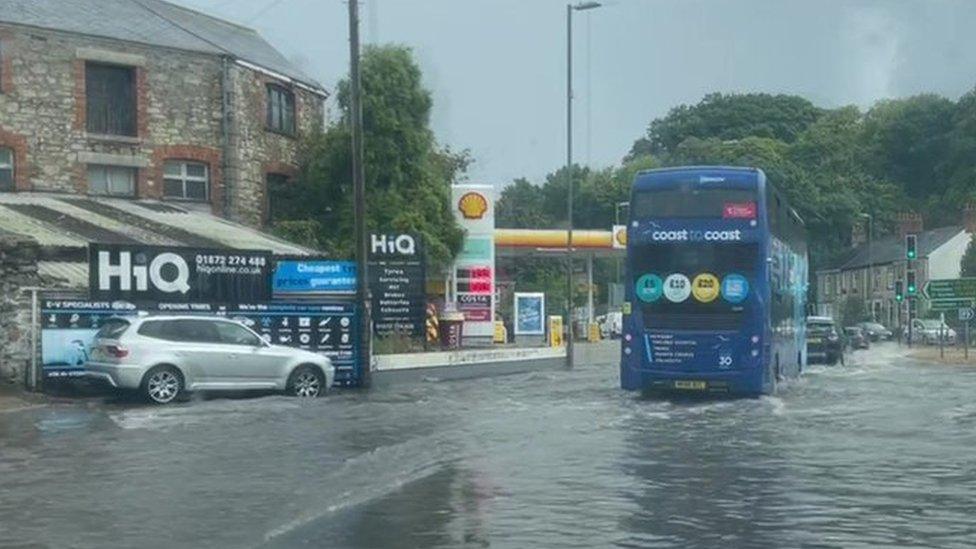
- Published15 August 2022
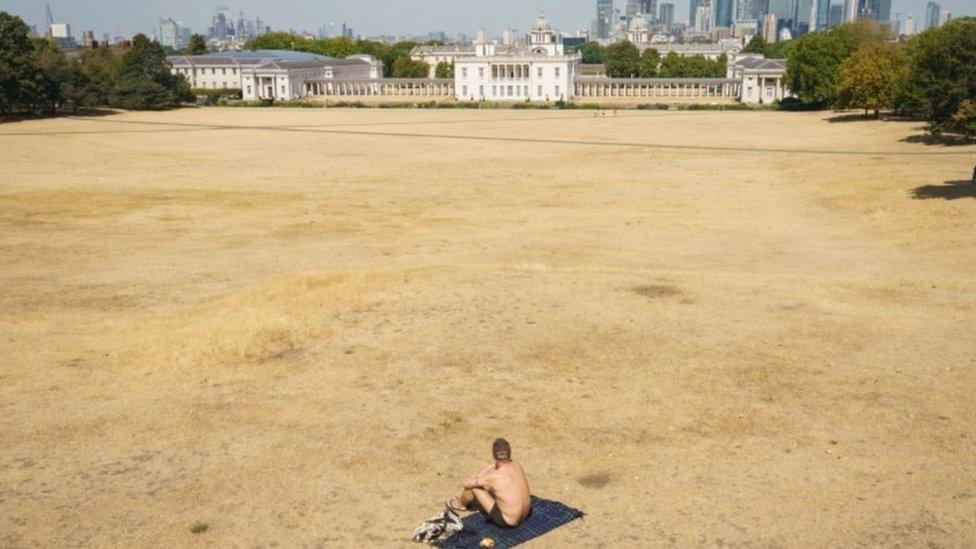
- Published14 August 2022
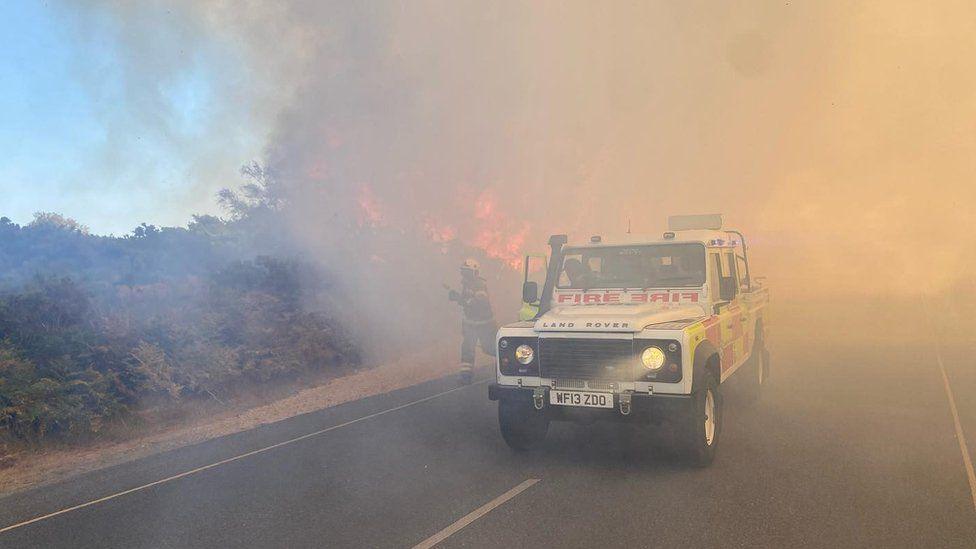
- Published14 August 2022

- Published12 August 2022
